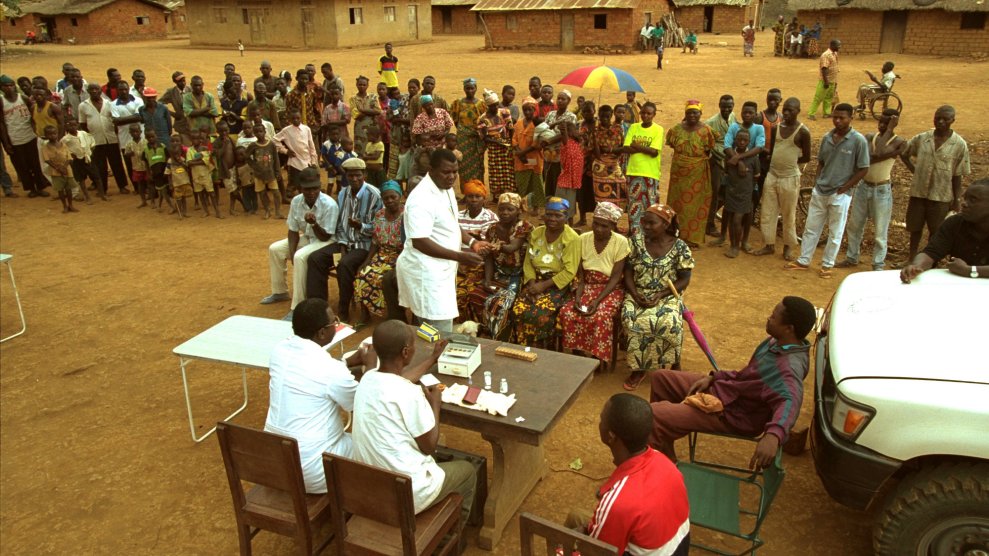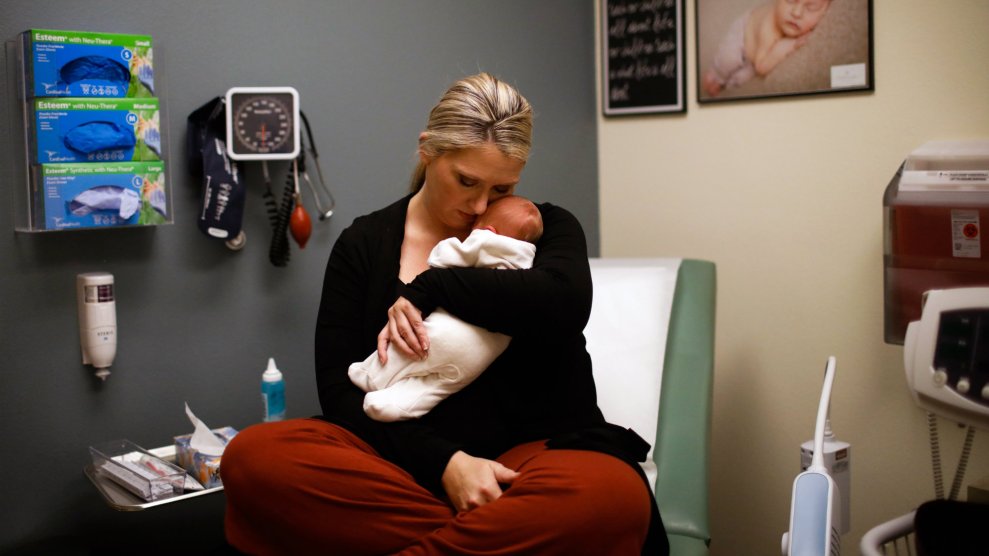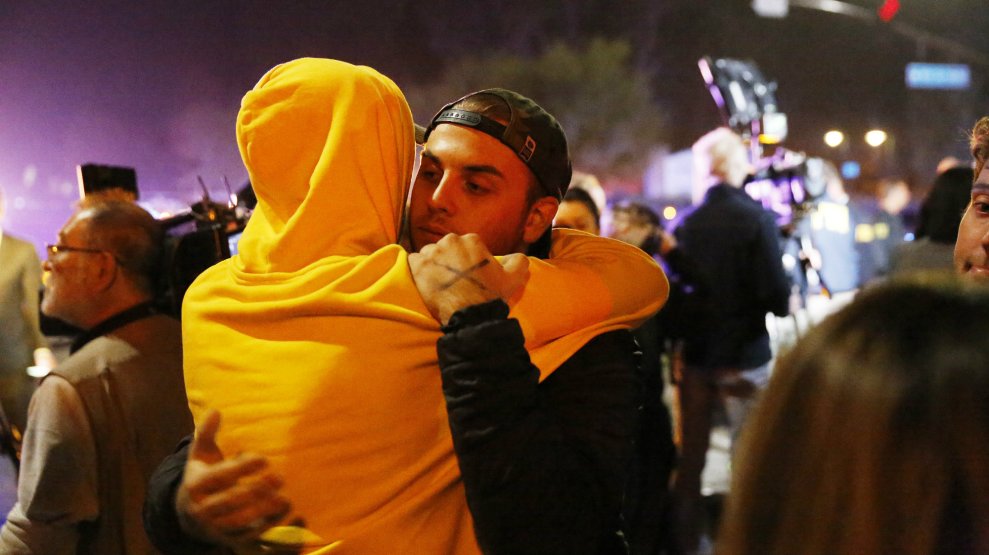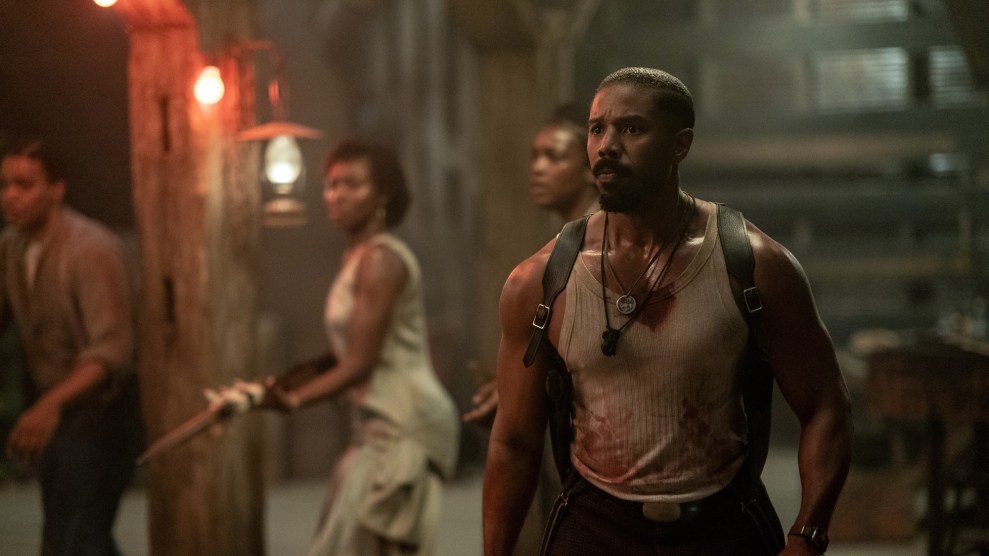
A medical team tests for sleeping sickness in a village in the Democratic Republic of Congo in 2000.Patrick Robert/Sygma/Getty Images
How do you stop sleeping sickness in a place where modern hospitals are hours, even days, away? The disease, carried by the river-borne tsetse fly, can cause its victims to experience headaches, madness, and, if left untreated, a fatal coma.
In the Democratic Republic of Congo, doctors have been making significant progress. The country has some of the highest rates of the disease, representing 85 percent of the world’s cases. But numbers have dropped drastically: At the turn of the century, there were 30,000 cases of sleeping sickness. In the first six months of 2018, that number fell to 350, raising hopes that the disease could be stamped out.
Some of this progress can be attributed to Victor Kande, a 68-year-old doctor who has spent four decades helping the country fight the epidemic. He and other medical officials have organized drives for a drug with fewer side effects, as well as efforts to install 15 million tsetse fly traps. The nation has also screened villages in the forests and on riverbanks for early signs of the disease to prevent its spread.
Though the efforts do not get much attention, even inside the DRC, the upsides are apparent. “If DRC eliminates sleeping sickness,” the revered, passionate Kande told the Guardian, “the world eliminates sleeping sickness.”
Welcome to this week’s edition of Recharge, which features people winning battles to help others, along with a special focus on California’s wildfires.
-
A sacred work-around. By law, Dutch police cannot enter a house of worship during services. After an Armenian family sought sanctuary at one church in The Hague, 300 volunteer pastors conducted round-the-clock services to prevent police from entering. Hundreds more attendees showed up to support the Tamrazyan family, who say they are refugees fleeing death threats in their homeland. A petition to grant the family asylum has received more than 250,000 signatures. “It’s impossible to express how special it feels when so many people help you,” says Hayarpi Tamrazyan, one of the family’s three children. (Quartz)
-
Working together. These five women were all bridesmaids at each other’s weddings. Now they’re state senators in Colorado. The five, who met working on public education issues, shared similar views on paid family leave, equal pay, the environment, and battling the opioid crisis. During their campaigns, they helped each other during difficult moments, especially when one was barraged by hate mail and negative ads. “We’re all in this together,” says Jessie Danielson, who campaigned with her toddler before her victory earlier this month. (People)
-
Found. During their honeymoon in 2004, Ryan and Kimberly made a coin to commemorate their love. After their home was destroyed during the Camp Fire in northern California this month, they went searching for the coin—and miraculously found it in the ashes. (Marcus Yam/Los Angeles Times)
- In defiance. The bride lost her family home. Their caterer’s kitchen went up in smoke. Fire destroyed the DJ’s equipment. But Morgan Shingler and Brian Gobba didn’t call off their wedding. “We weren’t going to let the fire take anything more from us,” Gobba said. They had it in a hall in Chico, California, with several guests—also burned out of their homes—wearing rented clothing. (Los Angeles Times)
- A close call. She raised five kids by herself. After helping hospital patients as the wildfire drew closer, Tamara Ferguson called her children—and made one last request. “I love you. Take care of Brayden and Allyson and Brooklyn,” she told them. “Make sure they know how much I loved them.” Thankfully, Ferguson made it through. (Los Angeles Times)
- Footnote. After 153 years, Texas public school students will finally be taught that slavery was the primary cause of the Civil War. Before, schools taught that states’ rights were a primary factor, enabling revisionists to claim the North was the aggressor. (Smithsonian)
Have a Recharge story of your own or an idea to make this column better? Fill out the form below or send me a note to me at recharge@motherjones.com.


















